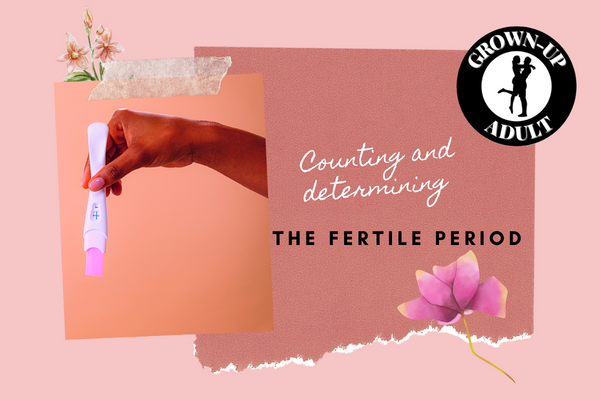The first pregnancy is something eagerly awaited by the couple who longed for the presence of a child in their family.
With the presence of a baby, the family will feel more complete and more alive.
However, with some couples, the pregnancy never arrived.
Pregnancy can happen when a mature egg cell is fertilized by sperm and successfully implanted in the uterus.
Therefore, knowing when the fertile period is considered important for women who are trying to conceive.
There are various ways you can do to predict a woman's fertile period.
The best way is to recognize the signs on the body that ovulation is imminent.
The ways are:

Calendar of ovulation
The fertile period is calculated according to the regularity of the menstrual cycle.
Regular Menstrual cycles.
The calendar of ovulation works fine in women with regular menstrual cycles.
A fertile period in women with regular menstrual cycles is at day 14 +/- 1 to the day of the next menstruation, meaning that occurred on day 13 or 15 before the date of the next menstruation (the first day of menstruation counted as day 1).
For example: if the first day of your period to come is expected on October 31, the fertile period is October 16 to 18.
Irregular Menstrual cycles.
For women with irregular menstrual cycles, the first count cycle length is for 6 consecutive cycles to obtain the longest and shortest cycles.
The longest cycle was minus 11, while the shortest cycle was minus 18 and we found the fertile period.
Suppose the longest cycle is 30 and the shortest cycle is 26, the calculation is (30-11=21) and (26-18=8).
The fertile period lasts from day 8 to day 21.
The ovulation calendar system is less useful for women with irregular menstrual cycles.
Related page to read
Changes in the cervical mucus.
A woman is considered to have the most fertile period if the cervical mucus is clean, smooth, and elastic and can reach a length or a long gap of 10 cm without interruption.
It is associated with increased levels of the hormone estrogen in the body during ovulation.
Discomfort in the lower abdomen (Mittelschmerz)
About 1 in 5 women may feel pain or lower abdominal pain, this pain tends to be mild-moderate and may take several minutes to several hours which took place in the mid-menstrual cycle.
These conditions indicate the occurrence of ovulation (release of eggs from the ovary).
The increase in basal body temperature
Basal body temperature is: body temperature measured is the temperature in the morning when the woman was still in bed and not doing activities.
A basal temperature rise of 0.5-1.0 degrees Celsius is a sign of a woman ovulates.
Related page to read
Tools ovulation test
This tool can detect ovulation with great accuracy, and works by detecting the Preovulatory hormone that is LH-surge in the body.
The use of ultrasound (Ultrasonography)
With the aid of ultrasound, the doctor will measure the size of follicles (eggs) on the ovaries, if obtained follicles measure 18 mm or more, then this indicates that the woman will ovulate and be in the fertile period.
Usually, an ultrasound examination is performed on day 12 of the menstrual cycle.
When couples have had sexual intercourse regularly without using contraception during the period of 1 year yet are still not pregnant, then the couple is considered infertile (not fertile).
Consult with your obstetrician in order to find the cause of fertility problems to be addressed and get the excitement of your first pregnancy soon.


